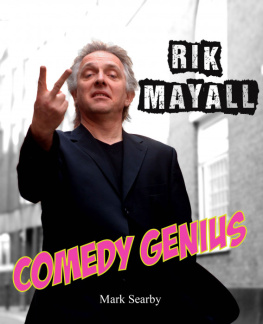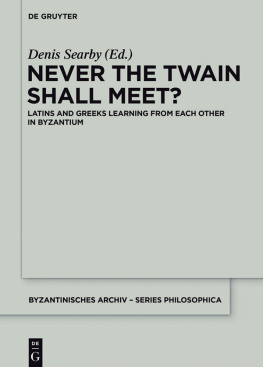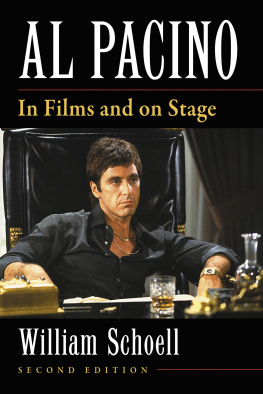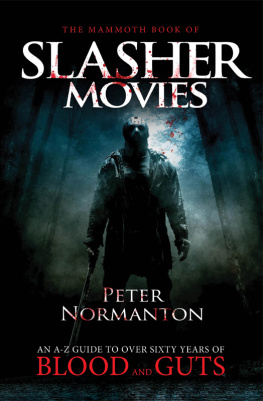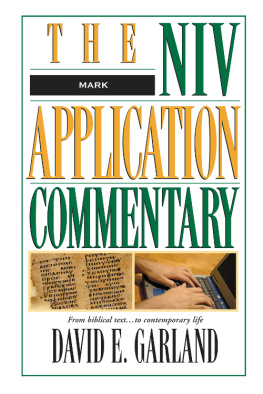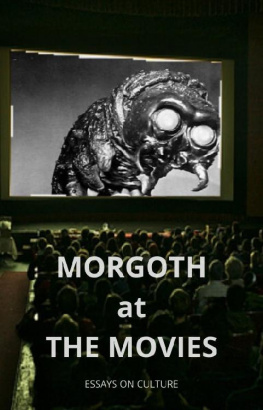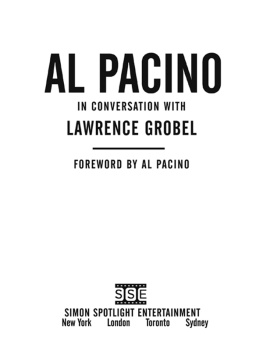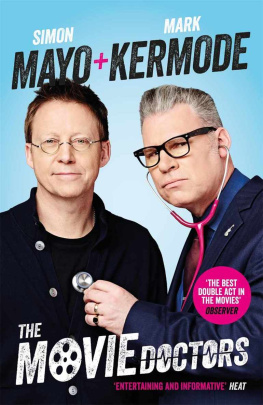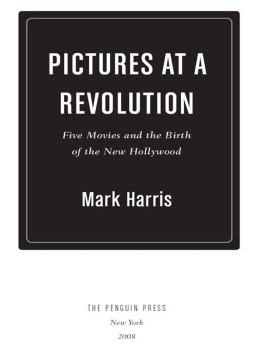Mark Searby - Al Pacino: The Movies Behind The Man
Here you can read online Mark Searby - Al Pacino: The Movies Behind The Man full text of the book (entire story) in english for free. Download pdf and epub, get meaning, cover and reviews about this ebook. genre: Non-fiction. Description of the work, (preface) as well as reviews are available. Best literature library LitArk.com created for fans of good reading and offers a wide selection of genres:
Romance novel
Science fiction
Adventure
Detective
Science
History
Home and family
Prose
Art
Politics
Computer
Non-fiction
Religion
Business
Children
Humor
Choose a favorite category and find really read worthwhile books. Enjoy immersion in the world of imagination, feel the emotions of the characters or learn something new for yourself, make an fascinating discovery.

- Book:Al Pacino: The Movies Behind The Man
- Author:
- Genre:
- Rating:5 / 5
- Favourites:Add to favourites
- Your mark:
- 100
- 1
- 2
- 3
- 4
- 5
Al Pacino: The Movies Behind The Man: summary, description and annotation
We offer to read an annotation, description, summary or preface (depends on what the author of the book "Al Pacino: The Movies Behind The Man" wrote himself). If you haven't found the necessary information about the book — write in the comments, we will try to find it.
Al Pacino: The Movies Behind The Man — read online for free the complete book (whole text) full work
Below is the text of the book, divided by pages. System saving the place of the last page read, allows you to conveniently read the book "Al Pacino: The Movies Behind The Man" online for free, without having to search again every time where you left off. Put a bookmark, and you can go to the page where you finished reading at any time.
Font size:
Interval:
Bookmark:
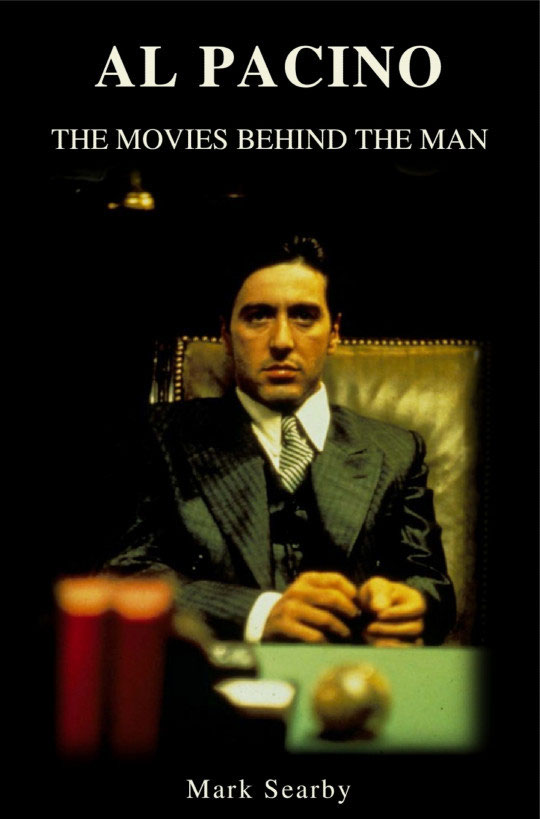
Mark Searby
Copyright 2017 Mark Searby
All rights reserved. No portion of this book may be reproduced in any form without permission from the publisher. For permissions contact: www.marksearby.com/contact/
ISBN: 978-0-9957931-1-8
First Edition
Distributed by Smashwords
Ebook formatting by www.ebooklaunch.com
For Samantha
My mom was a great influence on my life, Al Pacino recalled to TV host James Lipton during the legendary actors appearance on the programme: Inside the Actors Studio.
The actor was born in East Harlem, New York on 25 April 1940 to Sicilian-American parents Salvatore and Rose Pacino. Alfredo James Pacino was an only child and was nicknamed Sonny Boy by his family after the 1928 Al Jolson song: Sonny Boy. Pacino demonstrated an urge to perform early on in his life. Rose played Jolson records on their gramophone and young Pacino danced along while mimicking the words. At the age of two however, the actors life was set to change forever. His father was drafted into the army during World War II and upon his return Salvatore decided hed had enough of married life. He promptly left Rose and Alfredo for sunny California.
Faced with the prospect of being a single, working parent Rose moved in with her parents: James and Kate Gerardi. Consequently, she and her infant son came to live in the South Bronx area of New York City. Pacinos maternal grandparents had been born in Sicily, (specifically the town of Corleone) and immigrated to the United States of America in the early 1900s.
James and Kate became as influential in young Alfredos life as his mother was. The relationship between Alfredo and James blossomed, as each day the grandfather regaled his grandson with tales of life in Corleone and also the adventures of immigrating to America. James was filling the void in Pacinos life, acting as a father. His mother, while not present during the day, would ensure she was always home in the evenings with little Alfredo. On many occasions, she took him to the movies after finishing work as an usherette at the Dover Theatre. There, they watched the latest offerings from Hollywood together. They were both fans of James Dean.
My mother loved him, I loved him, Pacino has said.
At the tender age of five his mother took him to see The Lost Weekend starring Ray Milland. Too young to understand the harrowing storyline of a man trying to hide his alcoholism from those around him, Pacino latched on to Millands stumbling and desperate performance and re-enacted it in front of his family and their friends. Rose, a big reader and lover of the arts, encouraged her son to act out scenes from the films they had been to see. It became a vehicle through which Pacino could express himself, as he had always been a quiet and shy child. When friends of the family came round to the Gerardi household they would often hear little Alfredo in another room mumbling to himself. Kate said to the visitors: Al likes to talk to himself. Hes doing OK. In an interview with Guy Flatley of The Los Angeles Times during 1973, Pacino said: I was really all alone those first seven years of my life. In fact, I used to go steady with a broom, or maybe it was a mop.
To strangers, he was Roses shy boy who wouldnt say a solitary word. To those who got to know him, he was a joker and an exhibitionist. One time he told his mother that he would like to join the circus and become a clown. Instead, Rose sent him to Herman Ridder Junior School in the Bronx. This was a daunting change for this somewhat introverted child and meant that he was allowed out of the house without adult supervision - on the understanding that he returned straight home each night after classes had finished. For a shy and withdrawn kid like Pacino, it was a difficult place to make friends. Instead, he had to contend with the bullies in the playground. To escape the constant, unwanted attention from both the boys and girls, he would make up stories about his life and where he was from. One time he told those listening he was originally from Texas or that he had a large number of man-eating dogs at home. It wasnt long before he got a reputation as someone who liked to tell stories and was dubbed: The Actor.
Rose would constantly be called to school because of some mischief her son had taken part in, including ripping open his bottom lip on some barbed wire fencing and putting the teachers glasses on her seat so she sat on them. His pranks started to earn him some popularity in school but these were not the types of buddies his family would approve of. They led him away from studying and into school rebellion. They also introduced him to cigarettes and alcohol. This disobedience eventually led to Pacino being reassigned to a class for emotionally disturbed children. He lasted two days with his new classmates before seeing the error of his ways and promising to behave so that he could return to his main class.
Struggling academically, a love of baseball was an outlet for the young Pacino. After squashing the idea of becoming a clown in the circus years earlier, he aspired to become a professional baseball player. While playing at school, Pacino not only wanted to win but also revelled in showing off to his teammates. If I made a catch at third base, Id do a double somersault and sprawl out on the ground, Pacino recalled when asked about his time playing. However, when the scouts for his beloved New York Yankees didnt knock down his door he started to wonder what his vocation in life should be.
At the age of thirteen Pacino appeared in the schools play, it was an adaptation of Craig Rices mystery comedy Home Sweet Homicide. One scene called for his character to be sick and, showing the first signs of his love for method acting, Pacino became physically and emotionally nauseous during the production. Afterwards a teacher told Rose: Hes the next Brando.
To a packed school auditorium, he read passages from the bible with such enthusiasm that months later a letter was sent to Rose from drama teacher Blanche Rothstein that suggested his talents lay in acting. Sensing light at the end of the tunnel for a rudderless son, Rose encouraged him with his acting all through High School. Pacino starred in a school production of The King And I which required him to sing. His showmanship was clear for all to see; however, his school work was suffering and he dropped out of many classes. Eventually the only two classes Pacino could be found in were Drama and English.
When it came time to leave Herman Ridder Junior High School, Pacino decided he wanted to continue his acting studies but because of his low grades the only place that would accept him was The High School of Performing Arts. This meant leaving the familiar neighbourhood of the Bronx and venturing into New York City. A daunting thought for a teenage Pacino. Eventually though, he became accustomed to the hustle and bustle of the city. Occasionally, Rose saved enough money to take her son to see a couple of plays. A fifteen year-old Pacino, and his mother, went to see a travelling theatre production of Anton Chekhovs play The Seagull in a disused, vaudeville theatre called the Elsmere Theatre in the Bronx. It seated about three thousand people but that night only twenty seats were filled. They probably werent any good, Pacino later commented. But I had never seen anything like it in my life. My life changed that day. Pacino was brought back down to Earth the next day when he walked into a coffee shop near The High School of Performing Arts and was served by one of the leads from the play. Pacino bumbled his way through complimenting the actor-cum-barista.
Font size:
Interval:
Bookmark:
Similar books «Al Pacino: The Movies Behind The Man»
Look at similar books to Al Pacino: The Movies Behind The Man. We have selected literature similar in name and meaning in the hope of providing readers with more options to find new, interesting, not yet read works.
Discussion, reviews of the book Al Pacino: The Movies Behind The Man and just readers' own opinions. Leave your comments, write what you think about the work, its meaning or the main characters. Specify what exactly you liked and what you didn't like, and why you think so.

